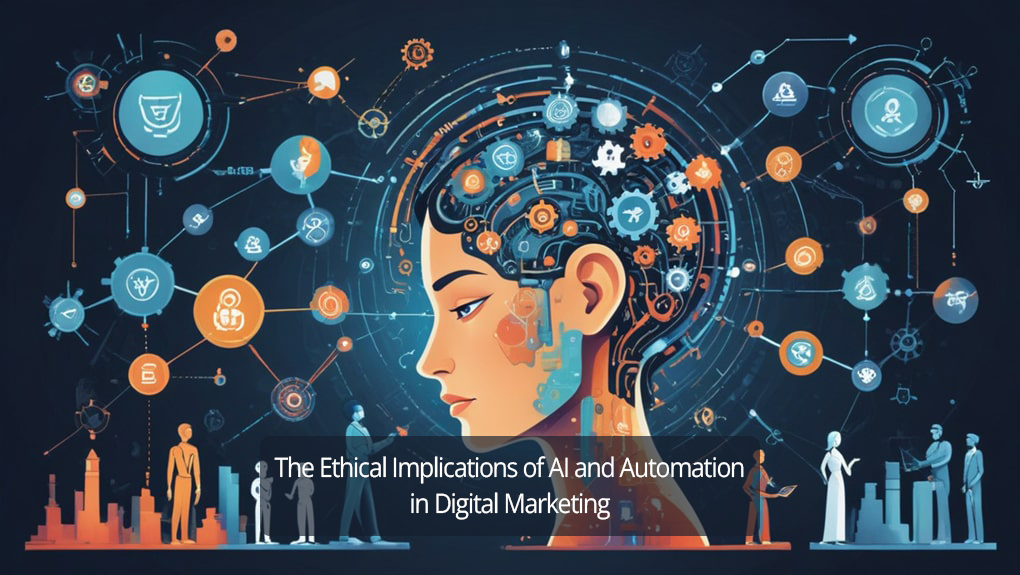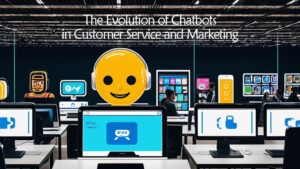|
Getting your Trinity Audio player ready...
|

To Begin With
In recent years, artificial intelligence (AI) and automation have revolutionized the digital marketing landscape. These technologies offer unprecedented efficiency, accuracy, and scalability, enabling marketers to reach their target audiences more effectively. However, the rapid adoption of AI and automation also brings forth significant ethical concerns that are often under-discussed. Among these concerns, the potential for AI to reinforce biases and the ethical considerations of replacing human jobs with automation stands out as critical issues that warrant in-depth exploration.
The Rise of AI and Automation in Digital Marketing
AI and automation have become integral to various aspects of digital marketing, from data analysis and customer segmentation to personalized content delivery and customer service. Machine learning algorithms can analyze vast amounts of data to uncover patterns and insights that human analysts might miss. Automated systems can execute marketing campaigns with precision, optimizing ad placements, and adjusting strategies in real-time based on performance metrics.
While the benefits of AI and automation in digital marketing are clear, it is essential to address the ethical implications associated with these technologies to ensure they are used responsibly and fairly.
Reinforcement of Biases through AI
Understanding Bias in AI
AI systems are designed to learn from data. However, if the data they are trained on is biased, the AI will likely replicate and even amplify these biases. Bias in AI can manifest in various ways, including gender bias, racial bias, and socio-economic bias. These biases can lead to discriminatory practices, perpetuating existing inequalities and unfair treatment of certain groups.
Sources of Bias
Bias in AI can originate from multiple sources, including:
- Historical Data: If the data used to train AI models reflects historical biases, the AI will learn and replicate these biases. For instance, if historical hiring data is biased against women or minorities, an AI recruitment tool may continue to favor certain demographics over others.
- Data Collection: Bias can also arise from the way data is collected. If the data is not representative of the entire population, the AI model may not perform well for underrepresented groups.
- Algorithm Design: The design of the algorithm itself can introduce bias. If the developers’ unconscious biases influence the algorithm’s parameters and decision-making processes, the AI system may produce biased outcomes.
Case Studies of AI Bias in Digital Marketing
Several high-profile cases have highlighted the issue of AI bias in digital marketing:
- Targeted Advertising: AI-driven ad targeting can sometimes lead to discriminatory practices. For example, a study by ProPublica found that Facebook’s ad platform allowed advertisers to exclude certain racial groups from seeing housing ads, potentially violating fair housing laws.
- Facial Recognition: AI-powered facial recognition technology has been shown to have higher error rates for individuals with darker skin tones. This bias can lead to unfair treatment in various applications, from security to customer service.
- Content Personalization: Recommendation algorithms used by platforms like YouTube and Netflix can create echo chambers, reinforcing existing biases and limiting exposure to diverse perspectives.
Ethical Considerations of Replacing Human Jobs with Automation
Impact on Employment
The automation of tasks traditionally performed by humans raises significant ethical concerns regarding employment. While automation can lead to increased efficiency and cost savings, it also has the potential to displace a substantial number of jobs. This displacement can have profound socio-economic implications, including increased unemployment and economic inequality.
Ethical Dilemmas
Several ethical dilemmas arise when considering the replacement of human jobs with automation:
- Job Displacement vs. Job Creation: While automation may eliminate certain jobs, it can also create new ones, particularly in fields related to AI development and maintenance. The ethical question is whether the new jobs created will be sufficient to offset the jobs lost and whether displaced workers will have the opportunity to transition into these new roles.
- Economic Inequality: Automation can exacerbate economic inequality if the benefits of increased productivity are not distributed equitably. If the wealth generated by automation is concentrated in the hands of a few, the gap between the rich and the poor will widen.
- Quality of Work: The nature of work itself may change with automation. While some tasks may become more efficient, others may become monotonous and dehumanizing. The ethical challenge is to ensure that the quality of work improves and that workers find fulfilment and purpose in their roles.
Addressing Bias in AI
To mitigate the ethical issues related to bias in AI, several strategies can be employed:
Diverse and Representative Data
Ensuring that AI systems are trained on diverse and representative data is crucial. This involves actively seeking out and incorporating data from underrepresented groups to create more balanced and fair AI models.
Bias Detection and Mitigation
Developers can use techniques to detect and mitigate bias in AI systems. This includes regular audits of AI models, using fairness metrics, and implementing corrective measures when biases are identified.
Inclusive Design Practices
Adopting inclusive design practices can help reduce bias in AI systems. This involves involving diverse teams in the development process and considering the potential impact of AI systems on different demographic groups.
Ethical Approaches to Automation
To address the ethical implications of job displacement due to automation, several approaches can be considered:
Reskilling and Upskilling
Investing in reskilling and upskilling programs for workers can help them transition to new roles created by automation. This requires collaboration between governments, businesses, and educational institutions to provide relevant training and support.
Inclusive Economic Policies
Implementing inclusive economic policies can help ensure that the benefits of automation are distributed more equitably. This may include measures such as universal basic income, progressive taxation, and social safety nets to support displaced workers.
Ethical Frameworks for Automation
Developing ethical frameworks for the deployment of automation technologies can help guide decision-making. These frameworks should prioritize human well-being, fairness, and social justice, ensuring that the adoption of automation aligns with broader societal values.
As I See
The ethical implications of AI and automation in digital marketing are complex and multifaceted. While these technologies offer significant benefits, they also pose risks related to bias and job displacement. Addressing these ethical challenges requires a concerted effort from all stakeholders, including businesses, policymakers, developers, and society at large.
By proactively addressing bias in AI and adopting ethical approaches to automation, we can harness the power of these technologies while minimizing their potential harms. Ultimately, the goal should be to create a digital marketing landscape that is not only efficient and effective but also fair and inclusive for all.
References
- Barocas, S., Hardt, M., & Narayanan, A. (2019). Fairness and Machine Learning. Retrieved from https://fairmlbook.org
- Noble, S. U. (2018). Algorithms of Oppression: How Search Engines Reinforce Racism. NYU Press.
- O’Neil, C. (2016). Weapons of Math Destruction: How Big Data Increases Inequality and Threatens Democracy. Crown Publishing Group.
- ProPublica. (2016). Machine Bias. Retrieved from https://www.propublica.org/article/machine-bias-risk-assessments-in-criminal-sentencing
- World Economic Forum. (2020). The Future of Jobs Report 2020. Retrieved from https://www.weforum.org/reports/the-future-of-jobs-report-2020




